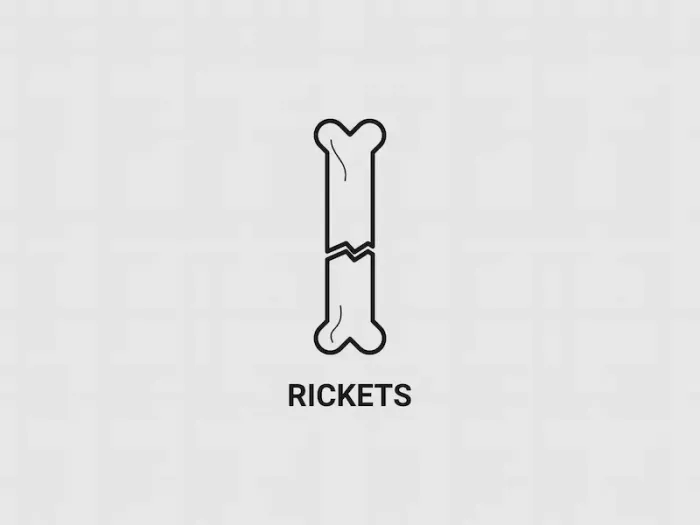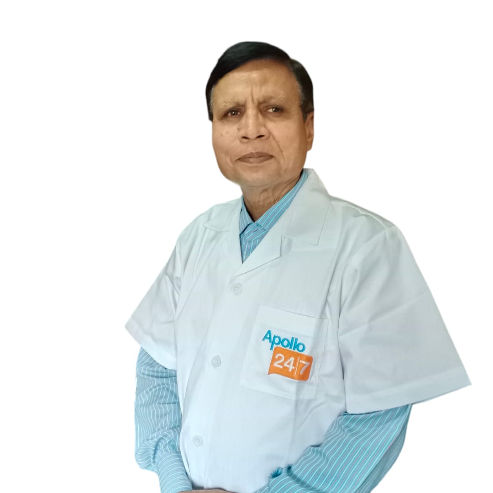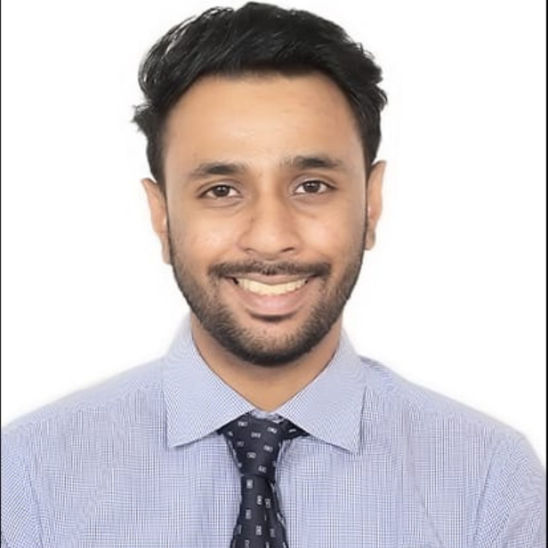Rickets Symptoms, Causes and Treatment
Know about rickets, what it is, symptoms, causes, how it affects health, treatment and prevention of rickets.


Introduction
Rickets is a bone disorder that primarily affects children, leading to soft and weak bones. It occurs due to a deficiency of vitamin D, calcium, or phosphate, which are essential for healthy bone development. While rickets is rare in developed countries, it can still affect children who don’t get enough sunlight or proper nutrition.
If left untreated, rickets can lead to bone deformities, stunted growth, and fractures. The good news is that it is preventable and treatable with the right care.
Symptoms of Rickets
The signs of rickets can vary, but common symptoms include:
• Bone pain or tenderness (especially in the arms, legs, spine, or pelvis)
• Delayed growth (shorter height than expected for age)
• Bowing of the legs (curved or bent appearance)
• Thickened wrists and ankles
• Soft skull bones (in infants)
• Muscle weakness (leading to difficulty walking or crawling)
• Dental problems (delayed tooth formation, cavities)
If your child shows any of these symptoms, it’s important to consult a doctor for early diagnosis and treatment.
Consult an Orthopaedic for Personalised Advice
Causes of Rickets
Rickets occurs when the body lacks vitamin D, which helps absorb calcium and phosphate from food. Without enough of these minerals, bones become weak and soft. The main causes include:
1. Lack of Vitamin D
• Insufficient sunlight exposure (vitamin D is produced when skin is exposed to sunlight).
Poor diet (not consuming enough vitamin D-rich foods like fish, eggs, and fortified milk).
2. Genetic Factors
• Some rare genetic conditions can prevent the body from processing vitamin D properly.
3. Digestive Disorders
• Conditions like celiac disease or cystic fibrosis can interfere with nutrient absorption.
4. Kidney or Liver Diseases
• These organs help convert vitamin D into its active form, so dysfunction can lead to deficiencies.
How Rickets Affects Health?
Untreated rickets can cause:
• Bone deformities (such as bowed legs or a curved spine).
• Increased risk of fractures due to weak bones.
• Dental issues like delayed tooth growth and weak enamel.
• Muscle weakness, making movement difficult.
• Growth delays affect a child’s height and development.
Early treatment can prevent long-term complications, so seeking medical advice is crucial.
Treatment and Prevention of Rickets
1. Vitamin D & Calcium Supplements
• Doctors may prescribe vitamin D and calcium supplements to correct deficiencies.
• Follow the recommended dosage to avoid excess intake, which can be harmful.
2. Sunlight Exposure
• Spending 10–30 minutes in sunlight (especially in the morning) helps the body produce vitamin D naturally.
• Darker-skinned individuals may need more sun exposure.
3. Dietary Changes
Include these vitamin D and calcium-rich foods in your child’s diet:
• Fatty fish (salmon, tuna, mackerel)
• Egg yolks
• Fortified milk, cereals, and orange juice
• Cheese and yoghurt
• Leafy greens (spinach, kale)
4. Treating Underlying Conditions
• If rickets is caused by digestive or kidney disorders, treating the root condition is essential.
5. Physical Therapy & Braces
• In severe cases, braces or surgery may be needed to correct bone deformities.
• Physical therapy can help strengthen muscles and improve mobility.
When to See a Doctor
If your child shows signs of rickets, such as bone pain, delayed growth, or bowed legs, consult a paediatrician. Early diagnosis and treatment can prevent complications.
Final Thoughts
Rickets is a preventable and treatable condition. By ensuring proper nutrition, sunlight exposure, and medical care, you can help your child develop strong and healthy bones. If you notice any symptoms, don’t hesitate to seek professional advice.
Consult an Orthopaedic for Personalised Advice
Consult an Orthopaedic for Personalised Advice

Dr. Anil Pradeep Jadhav
Orthopaedician
23 Years • MBBS MS (Ortho)
Nashik
Apollo Hospitals Nashik, Nashik
(25+ Patients)

Dr. Rupam Chowdhury
Orthopaedician
10 Years • MBBS, DNB (Ortho.)
Kolkata
MCR SUPER SPECIALITY POLY CLINIC & PATHOLOGY, Kolkata

Dr. Susheel B
Orthopaedician
13 Years • MBBS, MS, Ortho Fellowship in Trauma ( Germany) Fellowship in Arthroscopy and Arthroplasty ( Switzerland)
Bengaluru
Apollo Medical Center, Marathahalli, Bengaluru

Dr. Padam Singh Gautam
General Physician/ Internal Medicine Specialist
43 Years • M.B.B.S (WARDHA M. S.), F.A.G.E. (MANIPAL), F.A.I.M.S. (Pb.), M.A.I.M.S. (Pb.), M.R.S.H. (LONDON)
Noida
Dr Padam Singh Gautam Fracture Clinic, Noida
(250+ Patients)

Dr. Suraj Prakash
Orthopaedician
5 Years • MBBS, MS (Ortho)
Bengaluru
Apollo Clinic, Indiranagar, Bengaluru
Consult an Orthopaedic for Personalised Advice

Dr. Anil Pradeep Jadhav
Orthopaedician
23 Years • MBBS MS (Ortho)
Nashik
Apollo Hospitals Nashik, Nashik
(25+ Patients)

Dr. Rupam Chowdhury
Orthopaedician
10 Years • MBBS, DNB (Ortho.)
Kolkata
MCR SUPER SPECIALITY POLY CLINIC & PATHOLOGY, Kolkata

Dr. Susheel B
Orthopaedician
13 Years • MBBS, MS, Ortho Fellowship in Trauma ( Germany) Fellowship in Arthroscopy and Arthroplasty ( Switzerland)
Bengaluru
Apollo Medical Center, Marathahalli, Bengaluru

Dr. Padam Singh Gautam
General Physician/ Internal Medicine Specialist
43 Years • M.B.B.S (WARDHA M. S.), F.A.G.E. (MANIPAL), F.A.I.M.S. (Pb.), M.A.I.M.S. (Pb.), M.R.S.H. (LONDON)
Noida
Dr Padam Singh Gautam Fracture Clinic, Noida
(250+ Patients)

Dr. Suraj Prakash
Orthopaedician
5 Years • MBBS, MS (Ortho)
Bengaluru
Apollo Clinic, Indiranagar, Bengaluru